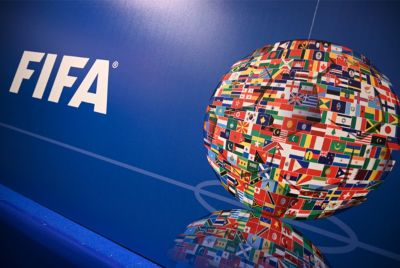Trump Blunder Exposed After 'Genocide' Photo Turns Out To Be Congo, Not South Africa
Ramaphosa countered Trump's claims, highlighting South Africa's efforts to address land reform and crime

President Donald Trump's 21 May 2025 Oval Office meeting with South African President Cyril Ramaphosa turned contentious when Trump claimed white South African farmers faced 'genocide,' brandishing images and videos as evidence, only for one key photo to be revealed as a scene from the Democratic Republic of Congo.
This high-profile misstep, reported on 23 May 2025, has sparked outrage and mockery, undermining Trump's narrative and straining US-South Africa relations.
As X posts amplify the blunder, what drove this error, and how is it reshaping diplomatic ties?
Let's dive into the fallout and its broader implications.
Correct False Claims with Fact-Checking
Trump's assertion of a 'genocide' against white South African farmers, a recurring theme since his 2018 tweets, relied on a video montage and printouts, including a Reuters screenshot of body bags he claimed depicted South African victims.
The New York Times revealed the image was from Congo, not South Africa, debunking his evidence. X posts from users like @TwirwanehoMoise and @anZo_maGee slammed Trump for shoddy research, with the latter noting the headlines he cited were unrelated to South Africa.
South Africa's murder rate, while high at 43.72 per 100,000 in 2022, shows no evidence of targeted 'genocide' against white farmers, per Yahoo News fact-checks.
Ramaphosa countered Trump's claims, highlighting South Africa's efforts to address land reform and crime, but the gaffe overshadowed diplomatic talks.
Rebuild Trust with Accurate Diplomacy
The blunder has damaged US credibility, with X users like @Bvweir calling it an embarrassment to American diplomacy.
Reuters reports that Trump's fixation on white farmer persecution, echoed in his 12 May 2025 decision to grant Afrikaners refugee status, ignores broader context: South Africa's 2024 land reform debates aim to address historical inequalities, not incite violence.
Ramaphosa, during the meeting, emphasized regional peace efforts, like South Africa's troop withdrawal from Congo, per The New York Times report. Yet, Trump's focus on misleading visuals, costing £80,000 ($107,000) to compile per aides, drew ire.
X sentiments, like @PrayerWarriorF1's, stress the need for verified data to avoid such diplomatic misfires, urging leaders to prioritize facts over sensationalism.
Shift Focus to Substantive Issues
Trump's error distracts from pressing US-South Africa priorities, like trade and regional stability. South Africa exported £6.4 billion ($8.6 billion) in goods to the US in 2024, per Reuters, but Trump's tariff threats, including a 20% levy by 9 July 2025, loom large.
The gaffe also fuels skepticism about his administration's Africa policy, especially after granting refugee status to 50 Afrikaners while banning 20,000 others from Congo and Syria, per the same New York Times report.
Moving forward, diplomats suggest focusing on economic cooperation and Congo peace talks, where Trump claimed progress via adviser Massad Boulos, to rebuild trust by 30 June 2025.
Trump's Misstep: A Lesson in Diplomatic Precision
Trump's Congo image blunder has turned a serious claim into a global laughingstock, eroding trust in his administration's foreign policy.
By mistaking Congo for South Africa, he's handed critics ammunition and strained ties with a key African ally. Diplomats and citizens alike demand rigor over rhetoric, missteps like this cost credibility and cash.
America's global standing hinges on getting the facts right, no room for gaffes in high-stakes talks.
© Copyright IBTimes 2025. All rights reserved.





















